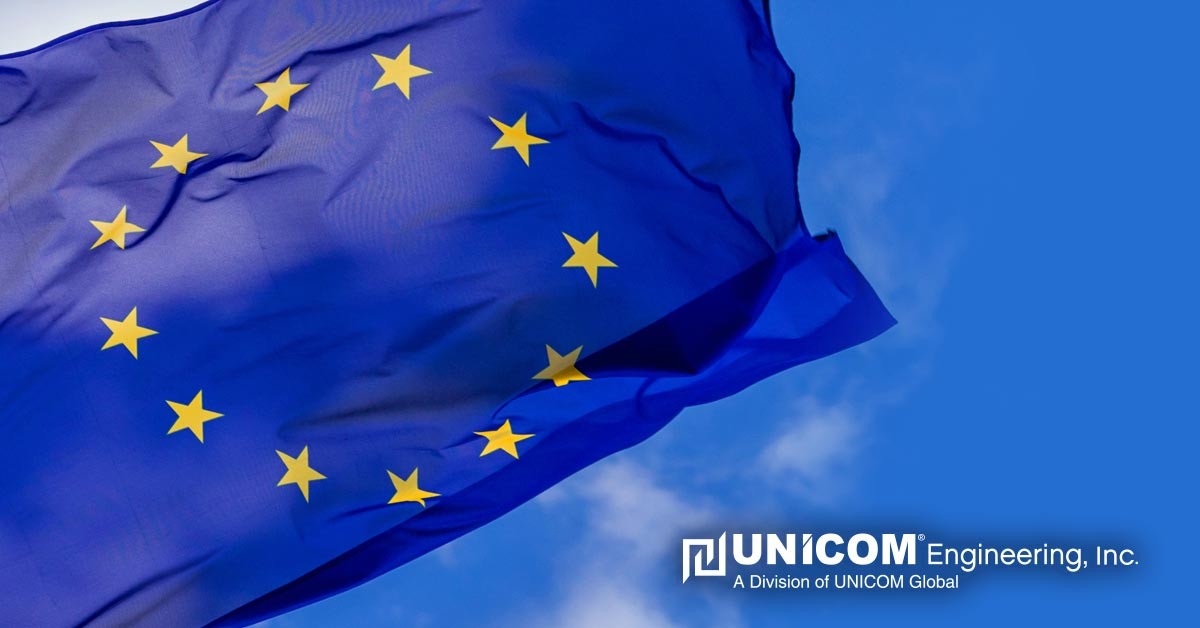A year after its implementation, the European Parliament's (ERP) Ecodesign requirement, known as EU Lot 9, continues to be of high interest within the industry. While we covered the fundamentals in our previous articles, the UNICOM Engineering Regulatory Compliance team wants to keep you up-to-date on the latest details as well as offer a few reminders to your team on track.
EU Lot 9 Compliance - What's New?
From the beginning, EU Lot 9's purpose has been to improve safety and lessen the environmental impact of server products of all kinds in the European Union.
Sound familiar? If you're thinking of the US Energy Star standard, you're on the right track. EU Lot 9 is part of a more extensive set of standards that govern many products imported into the EU. And while not identical, there exists a notable (and useful) amount of crossover between the two regulations.
Comparing EU Lot 9 to Energy Star
Created by the US EPA, the Energy Star program was EU Lot 9's precursor. Like the EU standards, Energy Star governs products large and small, from furnaces, to home appliances, to servers. Fortunately, for US companies, the Energy Star requirements are strict enough that following them enables compliance to many other world standards, including EU Lot 9.
There are even cases in which the Energy Star standards, although older, are stricter than EU Lot 9. Still, EU Lot 9 and Energy Star are not identical, and there are exceptions.
Understanding EU Lot 9 Requirements
So, when do EU Lot 9 regulations apply to your servers, and when not? As a rule of thumb, devices with user-installed operating systems and software must be tested under a slightly lower standard than Energy Star. In practical terms, any boxes that satisfy Energy Star will satisfy EU Lot 9.
Server appliances, however, are exempt from EU Lot 9 requirements. These are defined as devices that come pre-installed with software and serve a singular purpose. Think of a dedicated firewall or video security server.
Where you might notice the most significant departure from past European requirements is in data storage products. The difference lies in the specs for power supplies. Specifically, the ones shipped to the EU with storage devices must comply with the 80 Plus Platinum level.
The Path to EU Lot 9 Compliance
For servers, the simplest way to achieve EU Lot 9 compliance is to use Energy Star-compliant hardware. That's because the requirements are identical. However, for power supplies, the case is different. Even if they don't meet Energy Star standards, they may still satisfy EU Lot 9.
For data storage equipment, testing is not necessary. However, as mentioned, their power supplies should meet the 80 PLUS Platinum standard if they are single output. Multi-output power supplies must meet the 80 PLUS Gold standard.
Also, data storage products must be capable of secure data deletion, demonstrate the ease of disassembly, and meet specific recycling requirements. Additionally, storage products must provide documentation of all three conditions in their product manuals or via a website for a minimum of eight years.
EU Lot 9 Compliance Exceptions:
Some products produced and imported into the EU may not fall under the EU Lot 9 requirements. As a reminder, here are some notable exceptions.
Small Scale Servers - Which are servers with more than four processors per socket.
Large Scale Servers - Servers that contain one or more full-frame racks.
Server Appliances - These are servers that come with their OS and software pre-installed and are used for one specific purpose.
Small Data Storage Devices - Which contain three or fewer hard drives.
Large Data Storage Devices - Which contain more than four hundred drives.
Other Exceptions - Fully fault-tolerant servers and Network servers.
Keeping You Informed, Keeping You Compliant
As previously noted, the conformance of EU Lot 9 must continually be addressed when selling servers or data storage equipment into the EU. The addendum regarding firmware releases adds another layer. That's where having a partner that thoroughly understands the EU's regulatory requirements is crucial. The UNICOM Engineering Regulatory Compliance team ensures products meet these standards to reduce the risk for our clients. Learn more about how the UNICOM Engineering team can help you navigate the global regulatory process on our website or schedule your consultation with a UNICOM Engineering representative to learn more.
